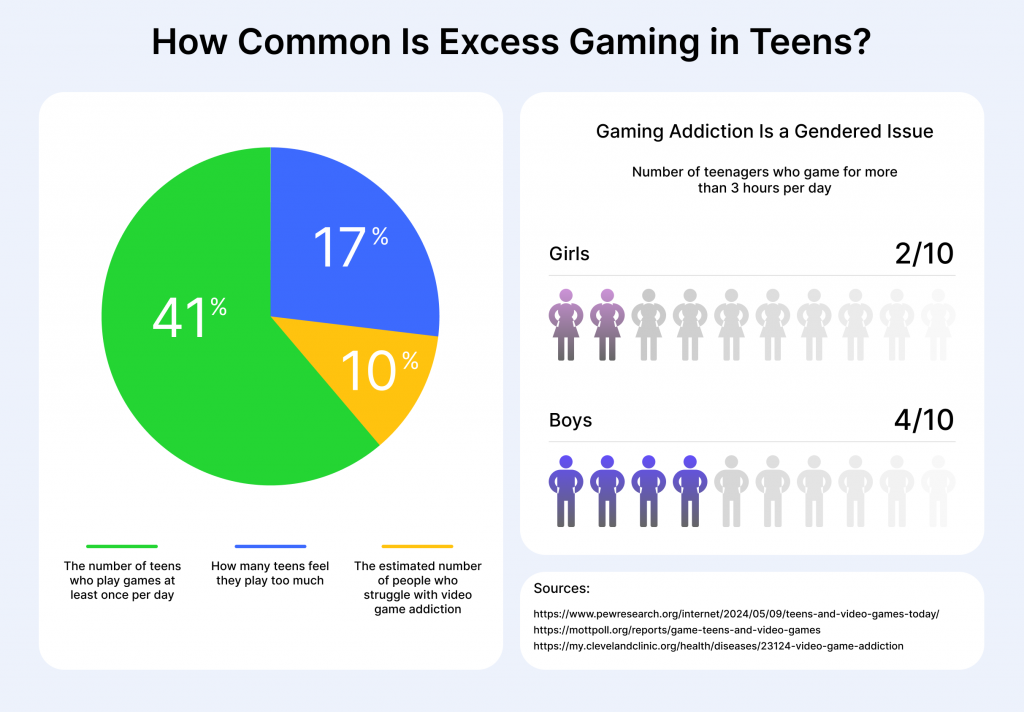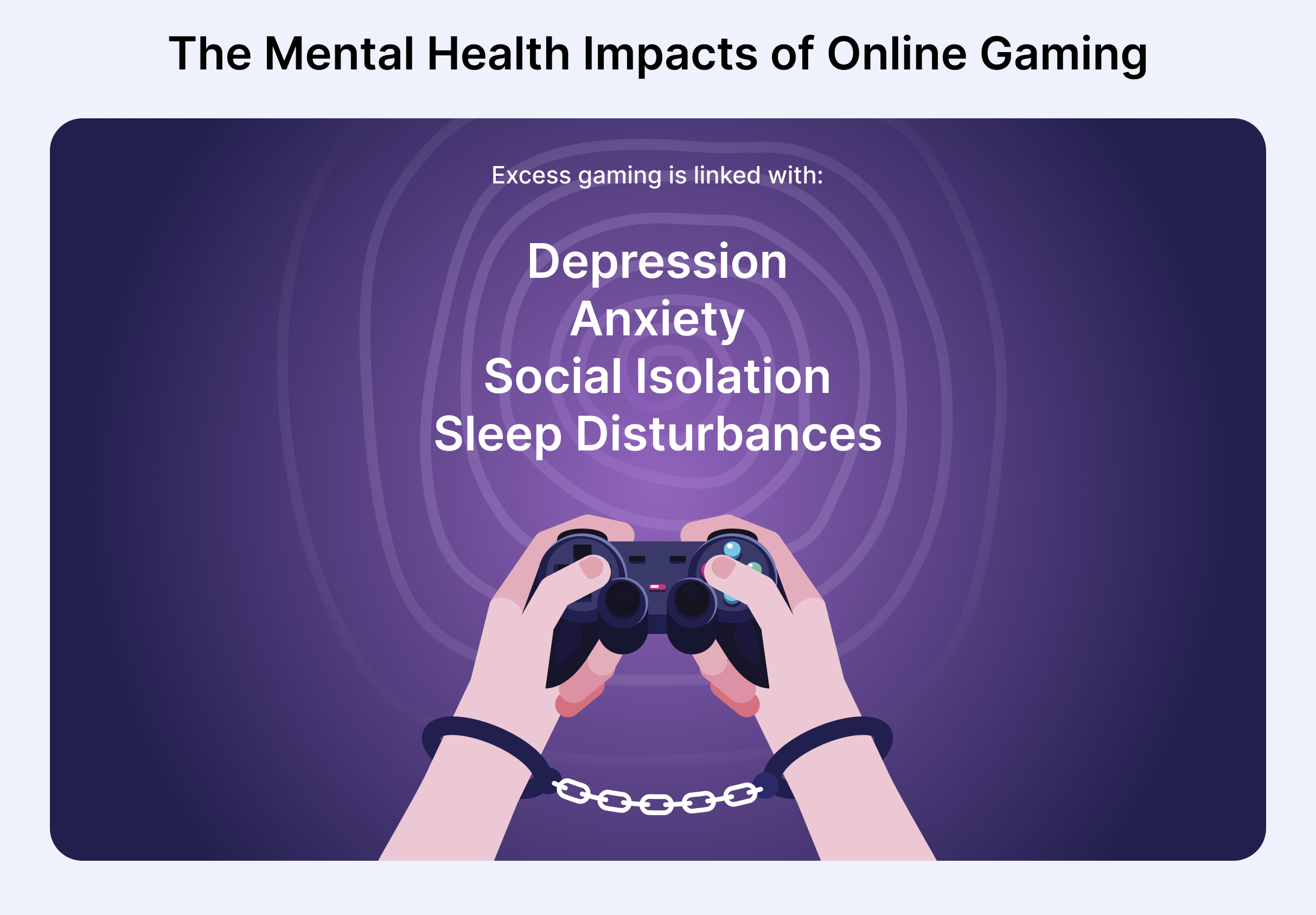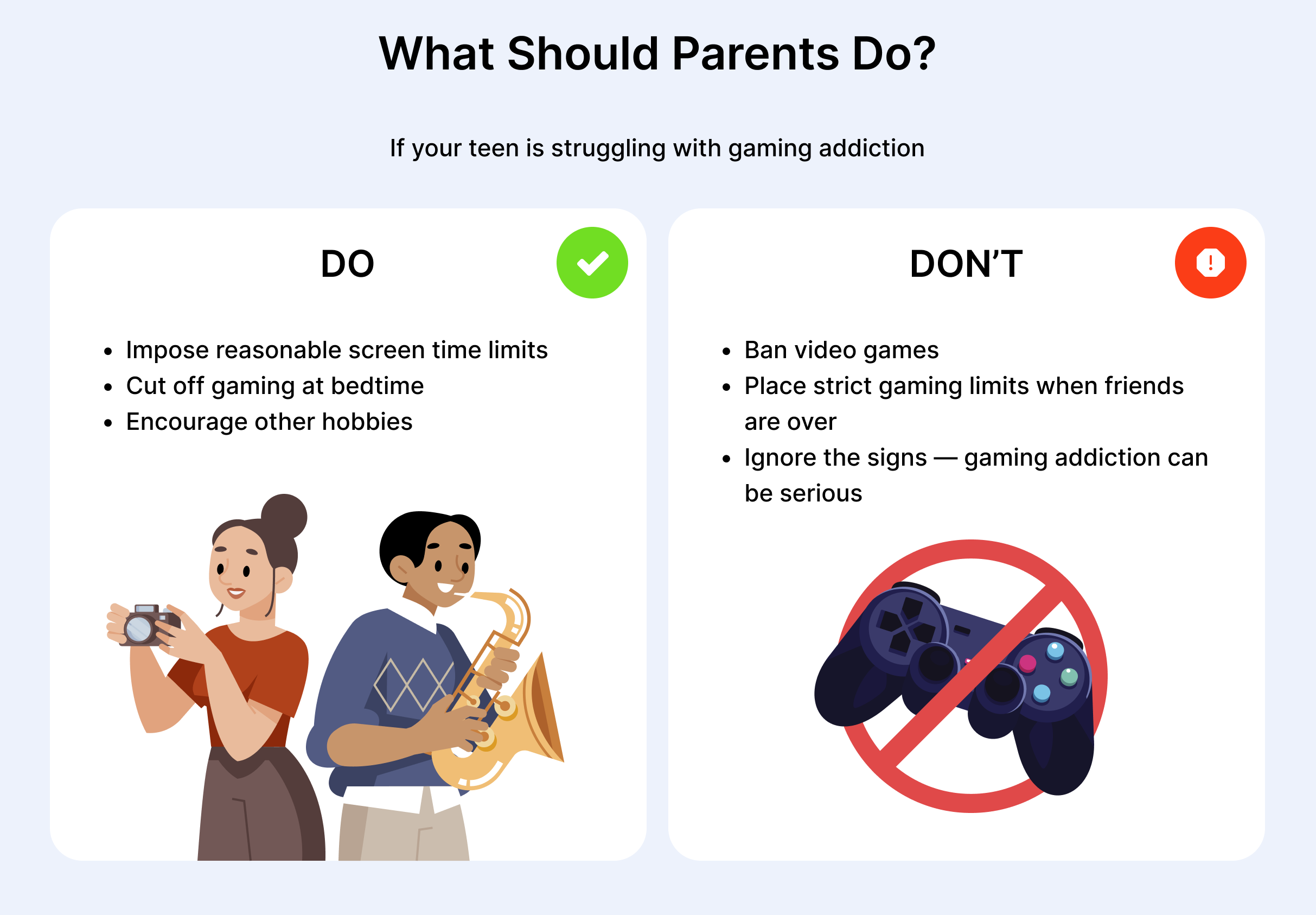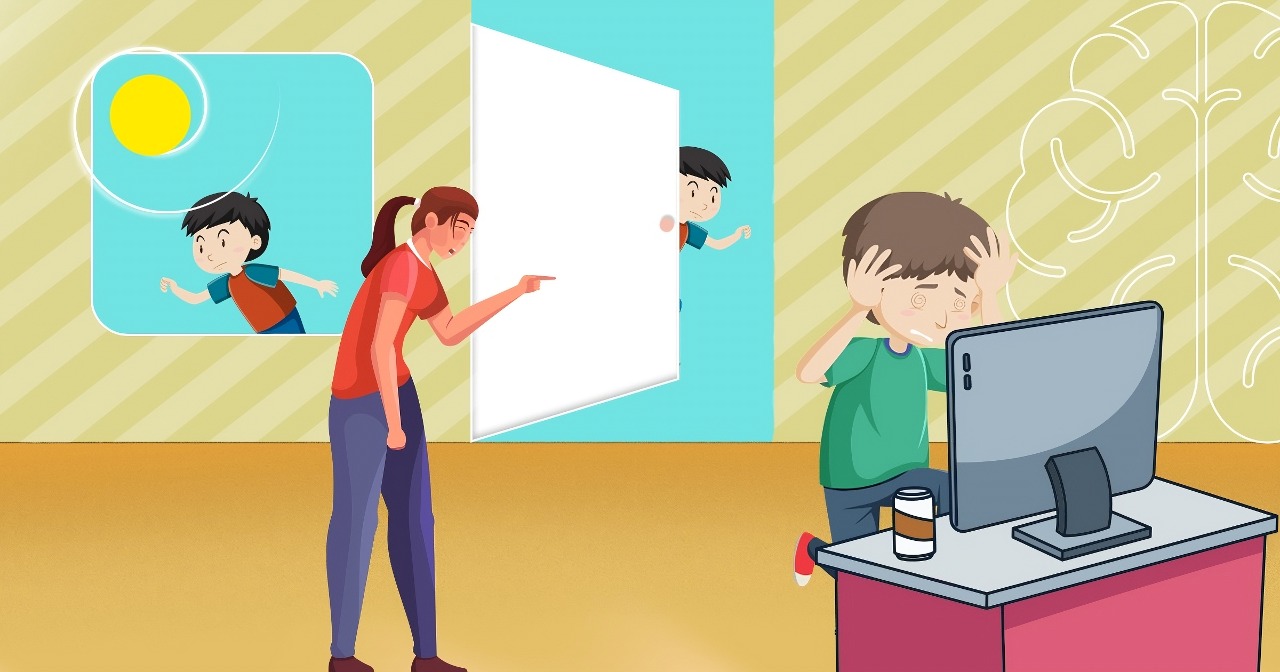It’s the perfect day to be outdoors. The sun is out, the weather is comfortably mild, and there are still plenty of hours before it gets dark.
But your kid isn’t enjoying the sun. In fact, they haven’t even gone outside.
They’re spending the day in front of their computer monitor, blasting away their opponents in an online game.
That’s a common scene in households with teenagers. It’s also one that leaves a lot of parents with nagging worries.
Is gaming really just a harmless hobby? Or is all that time your teen spends gaming having an effect on their mental health?
Well, the answer is a bit complicated. So, let’s take a moment to unpack the effects of excess gaming and what parents can do if their teen is spending too much time playing online games.
Teens Love Gaming – But Some Love It Too Much
Gaming is an incredibly popular hobby among teenagers. According to the Pew Research Center, 85% of US adolescents (ages 13 to 17) play video games.
Some teens, however, play far more than others.
The survey also found that 41% of American teens game at least once per day, and 40% of them identify as gamers.
So, 40% of teens play a lot. But how many of them play too much?
Well, according to the teens themselves, 17% of them do. That’s how many said they feel they overdo it.
And while Common Sense Media found that the average teenager spends less than two hours per day gaming, other research has found that many teens play video games for up to 50 hours each week. Some avid gamers will even manage to clock up to 100 hours of game time per week!

These numbers show that plenty of teenagers are able to regulate their gaming. They treat it like any other hobby and play a reasonable amount before moving on to other activities. But many teens find it difficult to log off or put down the controller, filling most of their waking hours with gaming.
How Excess Gaming Affects Teens’ Mental Health
Excess gaming is a source of worry for a lot of parents. But what does it actually do to a teenager’s brain?
It’s a subject that’s been studied closely and researched heavily. And unfortunately, the findings have uncovered a laundry list of adverse effects. Studies have linked excess gaming to:
- Higher levels of anxiety
- Lower self-esteem
- Increased aggression
- Social isolation
For instance, one study found that schoolchildren who displayed symptoms of internet gaming addiction were more likely to show signs of depression after a one-year follow-up.
The Pew survey, along with other studies, also found a correlation between excess gaming and poor sleep quality.
There are slight differences across studies, but one thing is clear: teens who spend too much time playing online games have worse mental health outcomes.
Is Gaming the Real Culprit?
While there is a clear association between excess gaming and anxiety, depression, and other mental health issues, it’s not entirely clear that the games themselves are to blame.
In fact, research shows that moderate use of video games can improve teenagers’ mental health and help them regulate their emotions.
But if it’s not the games themselves, then what is really causing the problem? Here are a few possibilities.
Sleep Disturbance
One possible cause is the lack of sleep that some teenagers experience as a result of excess gaming.
41% of teenage gamers who responded to the Pew survey said that gaming has interfered with their sleep. Since insufficient sleep and poor sleep quality can be detrimental to psychological wellbeing, this could be one of the factors behind the anxiety and depressive symptoms experienced by teens who game excessively.

Online Bullying
Bullying is another factor. 80% of teens who play games online report being on the receiving end of bullying while playing online games. Teenagers who play online games for hours each day, then, are more likely to be subject to insults and ridicule on a regular basis, which could be psychologically harmful.
Social Isolation
While many teens play games as a way to socialize, those who play compulsively might be missing out on opportunities to form connections with others, whether in person or online. Teens who prefer to stay in and play games instead of going out with friends, for example, might find themselves increasingly isolated from others. This type of social isolation is a significant risk factor for depression and other psychological issues.
The Type of Game Matters
While the time spent gaming online is linked with adverse mental health outcomes, one recent study also found that some types of games are riskier than others.
Specifically, teens who mostly played action games had worse performance in school. Similarly, those who prefer role-playing games were more likely to have fewer social connections and lower self-esteem.
This finding is especially concerning in the current online gaming landscape. While online gamers are still logging hours building in Minecraft, the two most popular online games at the moment (PUBG and Fortnite) are action games with violent themes.
The study also noted that action games elicited the most intense emotional responses in players. While there is no evidence of anyone becoming addicted to playing Solitaire online, for instance, the heightened emotional responses associated with action games could put teens who play them at greater risk of developing compulsive behavior toward gaming.
Signs to Watch Out For
So, how can parents tell if their teen’s gaming is becoming a problem?
The World Health Organization’s International Classification of Diseases defines gaming disorder as a pattern of gaming that impairs functioning “in personal, family, social, education, occupational, or other important areas” for at least 12 months.

In other words, online gaming is fine when it fits comfortably in a teenager’s life. But it becomes a problem when it interferes with other important aspects of it.
If a teenager simply loves gaming, it shouldn’t be an issue. But if their gaming is regularly disrupting their sleep, interfering with school work, and keeping them from socializing, then it’s a cause for concern.
What Can Parents Do If Their Teenager Is Addicted to Online Gaming?
Excessive gaming can be difficult to curb, but there are a few things parents can do to help their teen develop a healthier relationship with gaming – and avoid the mental health outcomes that come with it.
Enforce Bedtime
You might think your teen is too old to have a fixed bedtime, but ensuring proper sleep is essential to protecting their mental health.
No screen time an hour before bed is ideal, but there should at least be a hard limit to prevent gaming after lights out.
Encourage Other Hobbies
Encourage your teen to spend time on other hobbies or activities. The more ways they can have fun offline, the more likely they are to avoid compulsive gaming behavior.
Give Them Opportunities to Socialize
Since isolation is a risk factor for depression, give your teen more opportunities to socialize. This can include inviting friends over – for gaming or just to hang out.
Limit Game Time
If your teen seems to have difficulty regulating their use of video games, it might help to put some guardrails in place. Rather than banning games, impose a reasonable screen time limit or make them take regular breaks.
Conclusion
Gaming can be good for a teenager’s mental health, especially if they use it as a way to unwind or socialize with friends. But like anything else, it can be taken too far.
A few rounds of Solitaire to pass the time, an hour building in Minecraft, or loading up the PS5 when their friends are over aren’t really an issue. But when a teenager’s love of gaming turns into an obsession, it might be time to gently intervene.






